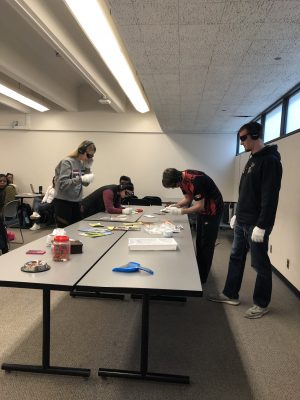
Higher education should not overlook the benefit of educating students on issues related to aging. In addition, tremendous career opportunities exist in Aging Services. The field is a legitimate career choice. However, students are largely unaware.
I didn’t give much thought to growing old when I was 20. But, while attending college at Northern Illinois University many moons ago, I elected to take two courses about aging, and that was the beginning of my career path into aging services.
The subject was interesting, and the focus of the two courses was very different. The first had more of a negative perspective- how growing old usually means depression, disability, and disease. In comparison, the second course painted a more optimistic view. Growing older can be a time for renewal, a life encore so to speak.
Fast forward 35 years, and I now teach aging courses at Northern Illinois University. With the wisdom that is acquired with age, I have a keen understanding of why it is important for young people to learn about issues of aging.
Young Minds Learning about Aging
First, the more we understand about the process of aging when we are young, the more influence we can exercise over our aging experience. I ask students who they want to be when they are 80, and what they will want out of life. It is not surprising that most students are unable to answer this question.
Second, we need to nurture more professionals into the Aging Services industry. To that end, my second course discusses Leadership in Aging Services. I introduce students to the possibility of a career in Aging Services. It is wonderful to witness their “aha” moment!
Many students find the topic of aging fascinating, especially when coupled with experiential learning. One student shared, “The book put the process of aging an interesting light. I also thought the Dementia Live experience is something that all students should continue to participate in. This was an experience that I will remember moving into my career, and even as a human being.”
“I am actually shocked at how much I learned in this course and how interesting it really is” shared another student. Many students discuss their own family members and gain a heightened appreciation for their challenges and how to support their personhood.
Teaching the young about the process of aging surely will produce positive benefits all the way around.
 Julie has worked in Aging Services for over 30 years and has been a Licensed Nursing Home Administrator since 1990. She is a Certified Master Trainer with the AGE-u-cate Training Institute. Through her company Enlighten Eldercare, Julie provides training and educational programs on elder caregiving to private and professional caregivers. She is an instructor and the Interim Director of Gerontology at Northern Illinois University and lives in the Chicago Northwest Suburb of Mount Prospect, IL.
Julie has worked in Aging Services for over 30 years and has been a Licensed Nursing Home Administrator since 1990. She is a Certified Master Trainer with the AGE-u-cate Training Institute. Through her company Enlighten Eldercare, Julie provides training and educational programs on elder caregiving to private and professional caregivers. She is an instructor and the Interim Director of Gerontology at Northern Illinois University and lives in the Chicago Northwest Suburb of Mount Prospect, IL.
 March 3 -7 is Careers in Aging Week and an appropriate time to talk about the importance of this topic. No longer are the shortages of direct care staff and others in long term care a subject of the future. The crisis is looming and it is serious.
March 3 -7 is Careers in Aging Week and an appropriate time to talk about the importance of this topic. No longer are the shortages of direct care staff and others in long term care a subject of the future. The crisis is looming and it is serious.